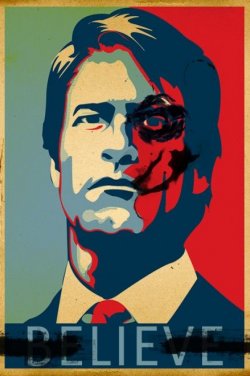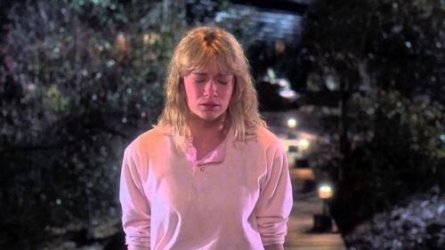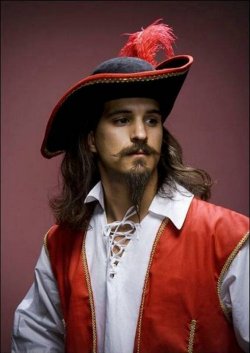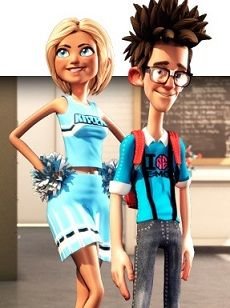- Sep 22, 2013
- 4,956
- 250
- 85
Why and how has American perspectives on celebrity (and patriotism) changed?
What does this mean for psychology...and psychiatry(!)?
====
Today's world creates social demands for publicity, magazine IQ, street-chic, and pedestrian imagination. That's why Vanity Fair, GQ, MTV, and Facebook are so reflective of social consciousness/imagination. The new age celebrity is dashing, bold, attractive, smart, well-dressed, and intriguing. Even criminal celebrities (e.g., Charles Manson) are cast as 'intellectually intriguing cases.' In general, we crave stories about spotlights on 'excitement prominence.'

Imagine you hear a news story about a police department recruiting a female psychic (named Tina) to help them track a nefarious and eerie serial-killer who robs cemeteries and wears a hockey-mask and calls himself 'Jason.' The story of psychic Tina helping the cops catch Jason makes national headlines and Tina becomes a celebrity. However, this is not the era of Sherlock Holmes of Houdini, so Tina (given that she's attractive) is cast as a sort of 'Barbie doll.'

We then hear the background bio of the eerie serial-killer Jason that Tina helped the police catch with her psychic powers of premonition/foresight. Policemen have recruited 'clairvoyants' in the past, but Tina's story is modern and interesting and is set in, say, New Orleans, and now Hollywood (USA) wants to make a movie about entire ordeal/case. Tina is celebrated as the 'psychic who trapped Jason.'

In days past, the celebrity may have been a very poetic court musketeer in France or a fancy female monarch in England or a erudite prince of Egypt. In those days, the concept of celebrity involved a 'quest' for honors and distinction based on social perspectives on class, prestige, dignity, flair, and swordsmanship. Celebrity in those days was much more about poetry than about sensationalism.

Today, our magazine-consciousness culture creates a demand for celebrities who are both hypnotizing and attractive. They have to be interesting in some way and 'highlight' our social fascination with 'popcorn-imagination.' Celebrities today are outrageous, sexy, world-traveled, 'delicious,' and of course, ambitious. Today, it seems, we all want to know/meet a celebrity so we feel 'closer' to the 'virtual world' of media and news. Today, celebrity means a demand for 'fireworks and beauty.' So, is this a form of 'etiquette treason' or 'capitalism theology'?

If you think about it, our new age fascination with virtual reality, video-games, and MTV creates a social interest in high-speed excitement, speedy news-delivery services (e.g., CNN.com), and of course, tabloids. We're interest in the 'rat-race' in terms of the gratifying 'colors' of toy-factory sensory stimulation (e.g., MTV's The Real World). In other words, there's a kind of 'cookie-cutter contest' breeding a special 'High Times voyeurism.'

So if you hear a story about a modern-day 'nerd' dating a super-popular attractive high-school prom-queen/cheerleader in some iconic American town such as Haddonfield, New Jersey, you might ask yourself, "Did the popular girl discover that the nerdy boy was somehow 'clairvoyant' about new age sensibilities regarding Microsoft/Apple trends?" In other words, modern social trends create new 'forms' of socialization imagination. This is really the 'competitive arena' now, and it can dangerously become a bigotry insanity (e.g., OJ Simpson trial).

DOCTOR: Are you nervous about Who Wants to Be a Millionaire (TV)?
PATIENT: Well, I crave fame and fortune like everyone else these days.
DOCTOR: Yes, but are you 'anxious' about the 'arena' of ambition?
PATIENT: Well, capitalism/consumerism today creates 'news-pits.'
DOCTOR: By being a 'news story,' you can 'become' a 'diplomat.'
PATIENT: That's the reasoning, doc; I can feel more 'patriotic.'
DOCTOR: That's correct; by 'tuning in,' you can 'feel alive.'
PATIENT: Isn't that how Charles Manson became a 'criminal celebrity'?
DOCTOR: Yes, but how was Manson different from, say, Bonnie and Clyde?
PATIENT: Manson was a criminal in this new age of media networks.
DOCTOR: Exactly! You're therefore nervous about 'modern traffic.'
PATIENT: I guess that's true, doc; I am 'anxious' about 'media intrigue.'
DOCTOR: That's why the Tina-Jason story made national headlines.
PATIENT: Right; everyone wants to feel like they're a 'population-guru.'
DOCTOR: You need to feel comfortable about just being a housewife...
PATIENT: That's possible...if we Americans still value The Donna Reed Show.
DOCTOR: All good things come to those who celebrate picket fences!
====

What does this mean for psychology...and psychiatry(!)?
====
Today's world creates social demands for publicity, magazine IQ, street-chic, and pedestrian imagination. That's why Vanity Fair, GQ, MTV, and Facebook are so reflective of social consciousness/imagination. The new age celebrity is dashing, bold, attractive, smart, well-dressed, and intriguing. Even criminal celebrities (e.g., Charles Manson) are cast as 'intellectually intriguing cases.' In general, we crave stories about spotlights on 'excitement prominence.'

Imagine you hear a news story about a police department recruiting a female psychic (named Tina) to help them track a nefarious and eerie serial-killer who robs cemeteries and wears a hockey-mask and calls himself 'Jason.' The story of psychic Tina helping the cops catch Jason makes national headlines and Tina becomes a celebrity. However, this is not the era of Sherlock Holmes of Houdini, so Tina (given that she's attractive) is cast as a sort of 'Barbie doll.'

We then hear the background bio of the eerie serial-killer Jason that Tina helped the police catch with her psychic powers of premonition/foresight. Policemen have recruited 'clairvoyants' in the past, but Tina's story is modern and interesting and is set in, say, New Orleans, and now Hollywood (USA) wants to make a movie about entire ordeal/case. Tina is celebrated as the 'psychic who trapped Jason.'

In days past, the celebrity may have been a very poetic court musketeer in France or a fancy female monarch in England or a erudite prince of Egypt. In those days, the concept of celebrity involved a 'quest' for honors and distinction based on social perspectives on class, prestige, dignity, flair, and swordsmanship. Celebrity in those days was much more about poetry than about sensationalism.

Today, our magazine-consciousness culture creates a demand for celebrities who are both hypnotizing and attractive. They have to be interesting in some way and 'highlight' our social fascination with 'popcorn-imagination.' Celebrities today are outrageous, sexy, world-traveled, 'delicious,' and of course, ambitious. Today, it seems, we all want to know/meet a celebrity so we feel 'closer' to the 'virtual world' of media and news. Today, celebrity means a demand for 'fireworks and beauty.' So, is this a form of 'etiquette treason' or 'capitalism theology'?

If you think about it, our new age fascination with virtual reality, video-games, and MTV creates a social interest in high-speed excitement, speedy news-delivery services (e.g., CNN.com), and of course, tabloids. We're interest in the 'rat-race' in terms of the gratifying 'colors' of toy-factory sensory stimulation (e.g., MTV's The Real World). In other words, there's a kind of 'cookie-cutter contest' breeding a special 'High Times voyeurism.'

So if you hear a story about a modern-day 'nerd' dating a super-popular attractive high-school prom-queen/cheerleader in some iconic American town such as Haddonfield, New Jersey, you might ask yourself, "Did the popular girl discover that the nerdy boy was somehow 'clairvoyant' about new age sensibilities regarding Microsoft/Apple trends?" In other words, modern social trends create new 'forms' of socialization imagination. This is really the 'competitive arena' now, and it can dangerously become a bigotry insanity (e.g., OJ Simpson trial).

DOCTOR: Are you nervous about Who Wants to Be a Millionaire (TV)?
PATIENT: Well, I crave fame and fortune like everyone else these days.
DOCTOR: Yes, but are you 'anxious' about the 'arena' of ambition?
PATIENT: Well, capitalism/consumerism today creates 'news-pits.'
DOCTOR: By being a 'news story,' you can 'become' a 'diplomat.'
PATIENT: That's the reasoning, doc; I can feel more 'patriotic.'
DOCTOR: That's correct; by 'tuning in,' you can 'feel alive.'
PATIENT: Isn't that how Charles Manson became a 'criminal celebrity'?
DOCTOR: Yes, but how was Manson different from, say, Bonnie and Clyde?
PATIENT: Manson was a criminal in this new age of media networks.
DOCTOR: Exactly! You're therefore nervous about 'modern traffic.'
PATIENT: I guess that's true, doc; I am 'anxious' about 'media intrigue.'
DOCTOR: That's why the Tina-Jason story made national headlines.
PATIENT: Right; everyone wants to feel like they're a 'population-guru.'
DOCTOR: You need to feel comfortable about just being a housewife...
PATIENT: That's possible...if we Americans still value The Donna Reed Show.
DOCTOR: All good things come to those who celebrate picket fences!
====

